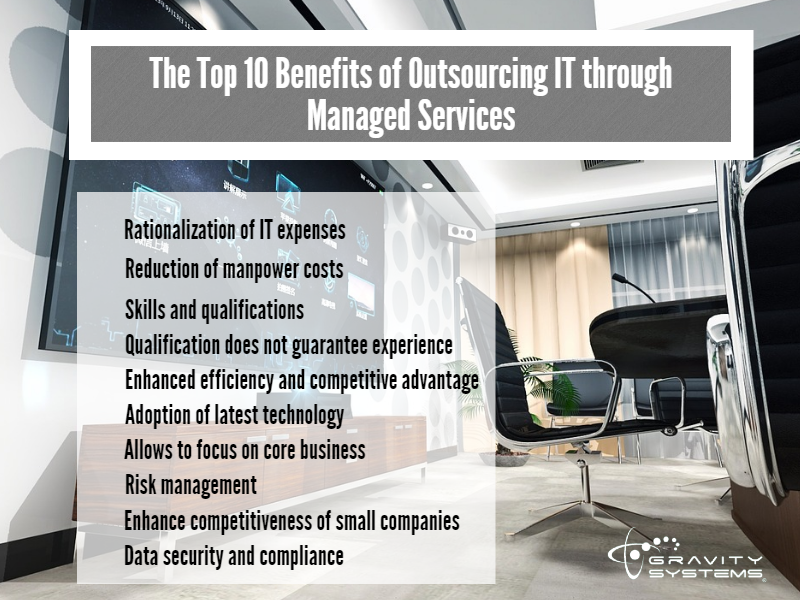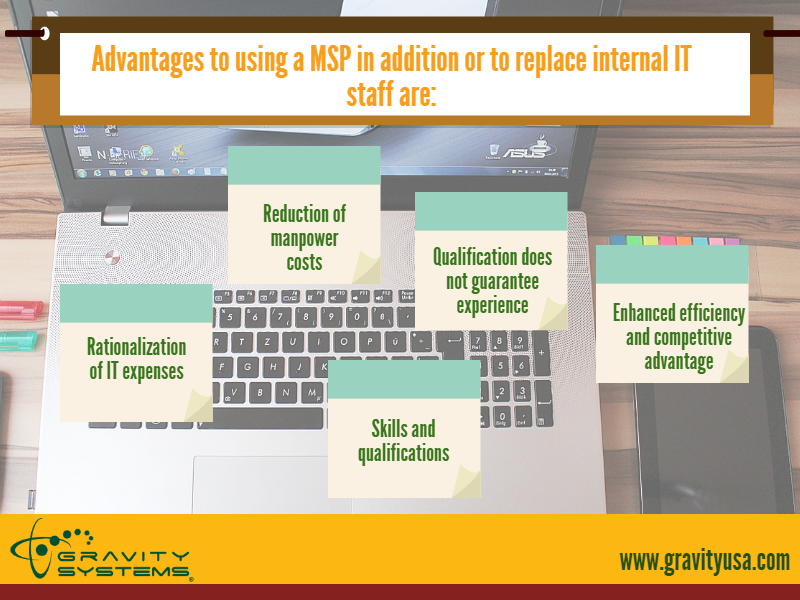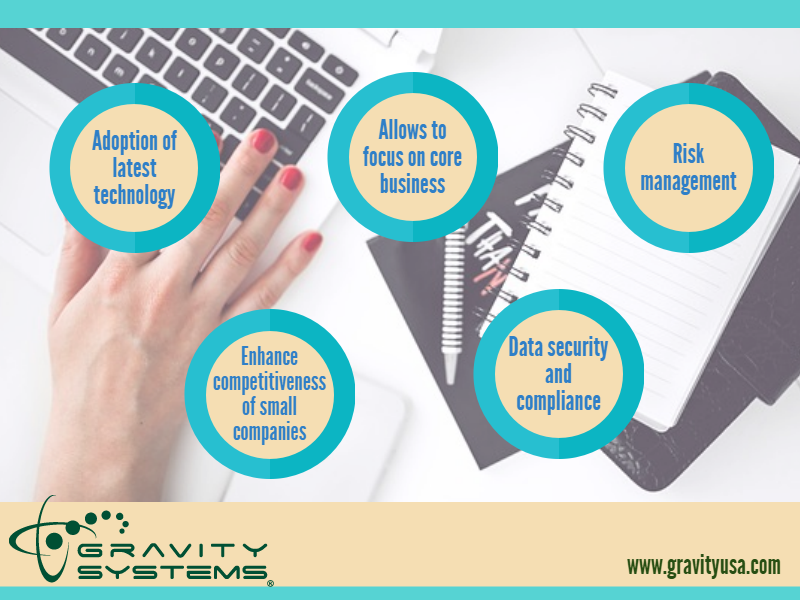
Outsourcing of IT services through an IT managed service provider is an attractive option for many small and mid-sized organizations. Some of the advantages to using a MSP in addition or to replace internal IT staff are:
1. Rationalization of IT expenses:
In-house IT services require fixed expenditures to be incurred regularly (salary, benefits, etc.). Since Managed Business IT Support can be based on the “pay as you go” model, the expense becomes variable in nature, often resulting in significant savings. Even if you sign a contract for monthly support with a MSP, these contracts are typically much less than the cost of hiring and retaining highly trained IT staff.
2. Reduction of manpower costs:
The high costs of recruitment and training of IT staff can cause a financial burden to most companies. Though temporary manpower is cheaper, very often they fail to deliver the desired results. Many companies feel that hiring a contractor for a couple of months to complete a computer roll-out, for example, is a fairly large gamble; you never know what you are going to get. IT managed services allow businesses to free-up costly manpower and deploy them to more important tasks, and still leverage the ability to “burst” when needed for projects and remediation.
3. Skills and qualifications:
The practical experience needed to solve routine and complex business IT challenges is hard to come by. Hiring an internal person with the correct breadth and depth of knowledge can be hard to do, and finding the person who also fits within the operating environment and structure of your business is difficult. With outsourced IT, you get access to professionals who have “been there and done that” across a variety of companies, including many like your company. A flexible, responsive IT firm can both provide skilled techs and also provide guidance and recommendations based on experience from a wide swath of customers.

4. Qualification does not guarantee experience:
Since the employees of an IT managed service company are accustomed to facing the same type of problems and challenges repeatedly, they are much better equipped to handle crisis and unique problems than are qualified in-house IT staff who work in isolation. For example, and in-house staff member might migrate servers once every 3-4 years. MSP staff likely migrate servers every few weeks.
5. Enhanced efficiency and competitive advantage:
Keeping the IT services in-house leads to higher costs of research and development and increased implementation time for an organization. Ultimately the price of the company’s product or service gets increased due to overhead, and the customers have to bear this cost. Companies that are in competitive environments may find that the reduced cost burden of outside IT support may give them a competitive advantage.
6. Adoption of latest technology:
Business IT Support companies have the required resources and trained personnel at their disposal, and are equipped to start new projects quickly. Implementing the same project in-house will take much longer, as mobilization of the required resources will usually take longer as internal IT still has to deal with their “day job”. Outsourced IT can also help you find the right technology solution to solve your business problems, saving internal staff research and vetting costs.
7. Allows to focus on core business:
IT outsourcing allows organizations to free up their scarce resources. The managers are no longer required to make complex IT decisions, and can focus on their core business. Most office managers dislike shopping for computers, for example, and for good reason! The vast amount of options and configurations can take a long time to sift through. Having the outsourced IT provider configure and/or order the computers can save a lot of time and frustration.

8. Risk management:
IT managed services help assess the risk of technological obsolescence and disruptions for their client organizations. These firms can help you see risks associated with your technology footprint and suggest remedies. This leaves the business manager better armed with information to make the best risk/reward calculations for their business.
9.Enhance competitiveness of small companies:
Technology is costly, and few small businesses can afford a dedicated in-house IT service like the big organizations. Opting for IT managed services gives them access to state-of-the-art technology services, and provides a level playing field to compete with the bigger competitors effectively.
10. Data security and compliance:
Online privacy and data security has become a prime concern to customers today. Businesses have to ensure compliance with several online security standards in order to keep the information pertaining to credit and debit card information, e-checks, etc. safe from unwanted intruders. By outsourcing IT services to Business IT Support, they can ensure that all sensitive information remains safe and the reputation and their competitive advantage remain intact.
For more information Get in touch with us: www.gravityusa.com



